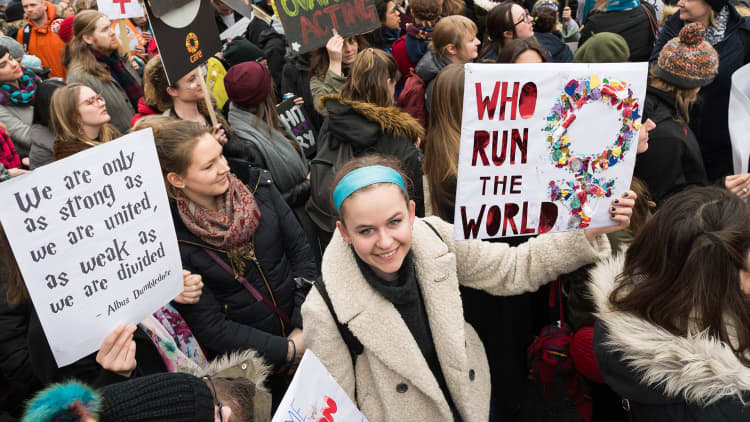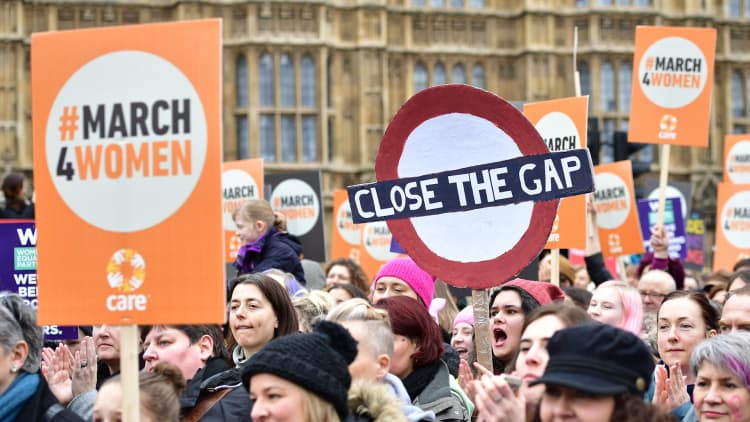The theme of this year's International Women's Day is "press for progress," but when it comes to the gender pay gap, data shows not a lot of progress has been made.
The gender pay gap across developed, emerging and developing countries stands at 20 percent, according to the latest estimate from the International Labour Organization (ILO). That means for every one dollar earned by a man around the world, a woman earns an average 80 cents.
The ILO also estimates that there's a 26.5 percent gender gap in labor force participation around the world, meaning far more men work than women.
Economists have found few signs these gaps are getting any narrower.
"Overall, there's no real progress actually in the last 10 years," said Stefan Kuhn, ILO Senior Economist.
Kuhn said a large part of the gender pay gap can be attributed to differences in occupations between men and women. Recent research has highlighted motherhood as a leading reason behind wage discrepancies as more women take time off to raise children. Still, several studies have found much of the pay gap cannot be explained.
"Economists try to analyze all the factors that we know: industry, education, how long you've been at work, hours," said Ariane Hegewisch of the Institute for Women's Policy Research, a nonpartisan think tank. "What is left over is what we can't explain with anything that can be easily measured, and that's basically the proxy for discrimination."
Despite debate over the causes of the gender pay gap, many experts agree leveling it will have economic benefits. A 2017 study by the Institute for Women's Policy Research found that the poverty rate of working women would be cut in half if women earned as much as men. The research also said equal pay would add an additional income of $512.6 billion to the U.S. economy if men's wages stayed the same.
ActionAid, an international organization that aims to reduce poverty, estimated equal pay would boost women's earnings in developing countries by $2 trillion.
Beyond upping women's wages, increasing female participation in the labor force can also reap economic rewards. If as many women worked as men, the IMF estimated GDP would increase by 5 percent in the U.S., 9 percent in Japan, 12 percent in the United Arab Emirates and 27 percent in India.
The IMF also found that adding more women into senior management roles or on corporate boards can directly boost a company's return on assets.
"Businesses have learned that they can draw upon diversity to strengthen their bottom line," said Miranda Brawn, director of legal and transaction management at Daiwa Capital Markets.
Brawn, who founded The Miranda Brawn Diversity Leadership Foundation in the U.K., said a diverse workplace contributes to a more creative, innovative and productive workforce.
"In this way, diversity is a key ingredient to growing a strong and inclusive economy that is built to last."




